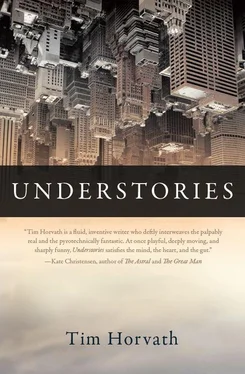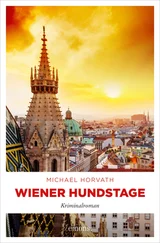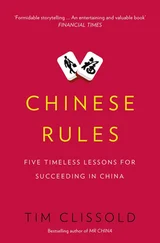
A pragmatist! Very well, then, let them think it, though in reality it is no exaggeration to say that his “plans”—if one is to call them that — derive wholly from the dream life that runs riot across the proscenium of his skull. If he were to reveal this, it would be dismissed at first, then, if he insisted, treated with suspicion, and finally he would be dismissed. It’s not as if he proposes Raedmeon as surreal playground — dripping, oozing plazas, grids with walkways and staircases spiraling up to their own nadirs, reservoirs that digest locals and belch the remains of the sun by dusk. Who, though, could possibly understand the way the orderliness he harnesses and maintains has its origins in his dream life ? Least of all his colleagues, drab bureaucrats to a man (and Camilla Barber).

When and how did he come to be “the Bread Machine”? At the holiday party one year, someone arrived with a fresh-made loaf, and they were all talking about it. Next thing you know he’s spittle-lip drunk and someone’s magic-markered some manufacturer’s name in the ample region between his hairline and the eyebrows that he raises, by habit, in lieu of his voice. The moniker’s no accident, though, never was — it’s too perfect an analogy for how he operates, and he dons it with pride. So into the Machine go the problems that beleaguer any self-respecting city: overcrowding, crumbling infrastructure, de facto segregation, inadequate power grids on nights of anomalous heat or cold, the bombardment of pollutions ocular and aural, the endless teeter between the chorus of the old and the sirenry of the new. Out come Proposals. Solutions (or leastways Disasters Narrowly Averted).

Into the Machine, too, go daydreams, the yearnings and desires of the forty-six-year-old eccentric loner whose lunch hours are spent browsing in the most unlikely locations — pawnshops, restaurant-supply stores, sequin-manufacturing concerns. He will not join them in the company cafeteria midway up the black cylinder they relocated to a couple of years ago, despite its panoramic views of the city. He needs to move in Raedmeon’s streets, to sniff out the sources of its pumpernickel, needs to see if its homeless veterans have updated their cardboard pleas or of late changed their bandages. In taking all of this in, he’s no saint, no deliverer of alms or answers; he is merely feeding the dreams that provide him with, for lack of a better word, his Ideas. After work, he’ll walk home through microcosmic cities of sheet vinyl and salvage just across from the abandoned tanneries, all the while chewing on the pumpernickel loaf he bought earlier. The Bread Machine indeed.

What none of them knows about is the pinch of yeast that goes into the Machine: 450 milligrams of Evanescet, sleeping medication not yet available to the general public, still in Experimental Trial Phase 3.3. No rat fatalities or illness beyond the usual side effects — involuntary twitching of the whiskers, diminished proprioception. At staggering doses only, catastrophic kidney malfunction. In order to swallow such doses proportionate to his own body size, Weston’s guy in the pharmaceutical industry assures him, he would have to slug pills all day long, quite literally alternating with coffee sips for hours on end. It would be virtually impossible to consume enough, his friend insists, to induce kidney problems even if, let’s say for some reason, he wanted kidney problems. Let’s just say you wanted kidney problems —he likes the way the guy says it, smirky but winning, traits he doesn’t see enough of at Urban Planning.
(He tried imitating this friend for a day, but it fell flat, and it was pointed out that something he said verged on harassment, so he dropped that tack at once).

Weston, stooped over, sloped with patience, a gift for waiting over the vast, cosmic sprawl of time his job demands, a knack for knowing and abiding by every procedure, doing everything fairly, hearing out all contractors and bidders, checking off all the boxes, refraining from jumping in until he’s heard all parties speak, Weston will not, damnit, sit around and wait for the government to approve Evanescet for common, everyday use. He needs the stuff now, needs the way it makes him swim through nights like a glowing set of eyes, springs him sated from the cot at daybreak. He loves the galvanic vigor that lingers in him on the bus as it wends its way downtown through the Raedmeon he’s helped make block by block. He’s tried other means of inducing sleep — drugs of the government-sanctioned variety, herbal blends, witches’ incantations. Nothing comes close, and as far as he can tell, his kidneys are stalwart as bighorn sheep.

On the bus this morning, he notes the tree-lined medians and open-air market, the vistas opened up by demolition and then the reassuring density of new construction encased in the fragile, spiny promise of scaffolding. Weston wants to cry out “O Evanescet!” like it’s some lover whose hips are enmeshed with his own, wants to sing the praise of this muse with a bardlike fervor. But he wills himself silent, yoking deep-diaphragm breaths to images of retirement, a mere eight years away. They’ll send him off with a gold-plated bread machine; of that he has no doubt. By then, Evanescet will be procurable in patch or chewing gum, either that or banned utterly but available at the right price, scored in a dark alley in needle form. Note to self: Preserve a handful of dark alleys. His upper lip twitches while he worries the pill crumbs in the inner lining of his coat pocket with his fingers, relishing the thought of devoting himself fully at last to the Raedmeon he’s been quietly constructing all along, one that would never appoint a committee, where the streets are lined with luminous balustrades, and planning means nothing other than dancing in the pineapple rotundas of an untranslatable night.
Givens: that there are too many to thank, that thanks are never quite adequate, that their ink allotment here can only hint at the true scope and scale of my gratitude.
Thanks to Steve Mounkhall for being the ideal reader, the extra lobe of my brain, a presence even when we have not spoken for stretches.
Thanks to Michele Filgate for reminding me that reading is, indeed, a variety of breathing, and for sharing so many inhalations and exhalations with me.
Thanks to the Seacoast Writers Circle, and most especially its core members — Donna Kirk, Josiah Eikelboom, W.B. Berman, Jim Kozubek, Tamara Collins, and Tammi Truax, who kept my nose within a spark’s breadth from the grindstone for years. And for sharing your brains, your words, and your laughter, and your Sunday evenings.
Thanks to David Fisher and Ross Kaplan for your unwavering support and continuous advice over the years.
Thanks to my stellar colleagues at Chester College of New England, Monica Bilson, Mark Sleiter, Eric Pinder, Chris Anderson, and Jenn Monroe — what fortune to be part of this amazing, sui generis department.
Thanks to writer and artist friends: Rebecca Makkai, Greg Gerke, Gabriel Blackwell, Matt Bell, Alison Lobron, Joshua Cohen, Kate Christensen, Brian Boyd, Steve Himmer, John Madera, Anna Wexler, Steve Almond, Lance Olsen, Krista Knight, Jacki Lyden, Beth Ann Miller, Chris Sumner, Judd Ehrlich, Alice Andrews, Becca Derry, and Mildred Crow; you have offered crucial support, conversation, and solace, and led by the example of your own pens and brushes.
Читать дальше













